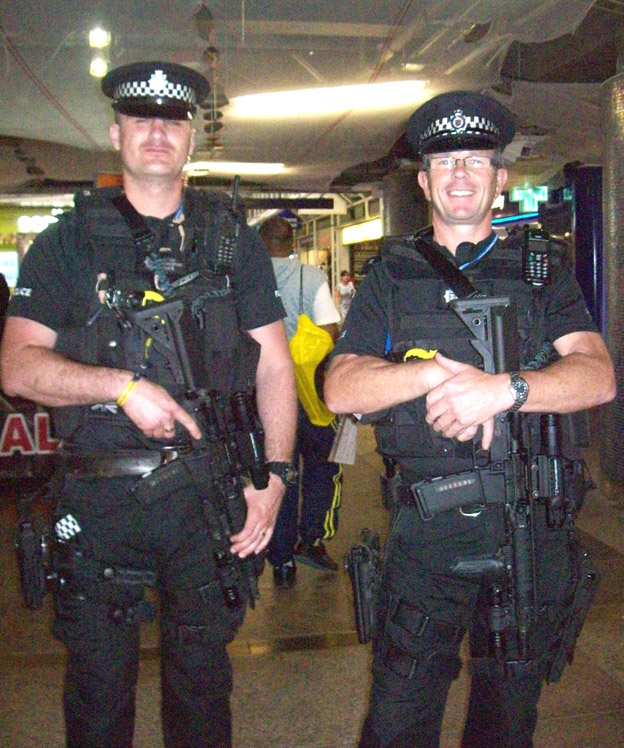HEAVILY ARMED special SAS forces were ordered onto the streets of the UK, yesterday and told to ‘shoot on sight’ suspected terrorists as the UK hires 1,900 more spies.
Using the Paris terror attacks to considerably bolster the UK state, the Special Air Service (SAS) forces unit of the British Army were issued with orders to shoot terrorist attackers on sight, following high-level meetings with senior intelligence officers from the Joint Terrorist Analysis Cell at MI5.
According to some reports, more than 60 soldiers are already operating under the direction of Scotland Yard’s Counter Terrorism Command. Tory Home Secretary Theresa May did not deny the reports, she said that ‘arrangements in place where necessary for the police to have military support’.
She said that special forces were to be dressed in plain clothes and supporting the police presence at busy public locations, including train and tube stations, shopping centres and popular entertainment districts.
Tory PM Cameron also announced that MI5, MI6 and GCHQ will recruit almost 1,900 new spies. The 15 per cent increase will be the biggest expansion of British security services since the 7 July terror attacks in London in 2005 and will also receive a massive injection of public funds, at a time where health, education and housing are being cut to shreds.
The extra 1,900 spies will add to the current 12,700 people employed by UK’s intelligence agencies MI6, MI5, and GCHQ. He also announced a doubling of funding for UK airport security around the world to £9m.
‘We have been aware of these cells operating in Syria that are radicalising people in our own countries, potentially sending people back to carry out attacks,’ Cameron admitted from from the G20 summit taking place at the Turkish resort of Belek.
He added: ‘Our security and intelligence services have stopped something like seven attacks in the last six months albeit attacks planned on a smaller scale.’ All of this comes as the draft Investigatory Powers Bill (IP Bill) was unveiled last week. The House of Commons Science and Technology committee is looking at whether gathering data on every citizen using the internet is feasible.
One of the most contentious aspects of the Bill obliges Internet Service Providers (ISPs) to record information about the services, websites and data every UK citizen uses and store that data for a year.
Renate Samson, Chief Executive of Big Brother Watch, said: ‘Requests for retention of internet connection records will provide access to the most detailed data on citizens, not just the who and when of a telephone record, but the what and how of the way we live our lives.’
‘Furthermore, the power to legally hack into our devices, could create legislative back doors which in a world of increased cyber-attack could make us more vulnerable to crime.’ Michael Dell, the chief executive of the US PC maker Dell Computers, said: ‘Our position on creating a back door inside our products so that the government can get in is that it’s a horrible idea’.
